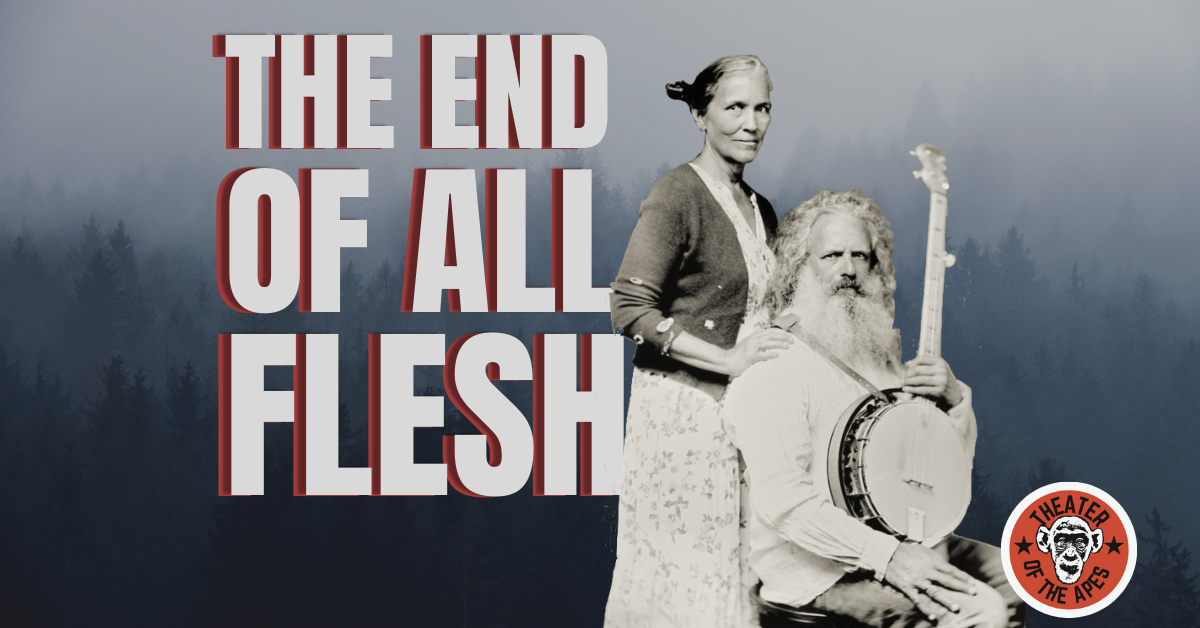Greg Kotis on Improv: “It Continues to Teach Me Art Can Be Fun.”

Greg Kotis is an improviser and playwright whose work includes Urinetown and The
End of All Flesh , which will be presented as part of Monday Night Musicals at The
Magnet .
Stephanie Anderson is an improviser and sketch writer-performer who has appeared
with with Infinite Jeff, Money & Things, The Wayfaring Strangers, and Triceratops. The two sat down to discuss Greg's upcoming show and how his improv background informs his work.
Stephanie Anderson: You’ve been doing improv since college when you
performed for “Off-Off Campus” at the University of Chicago. How has improv
informed or inspired your writing process?
Greg Kotis: I first started improvising in 1985 - forty years ago! Improv was an
obsession and near religion for me for most of my early and mid 20s, as it is for many,
before writing and raising a family became my focus. I think doing improv taught me
about comedy, or how I could be funny in my own particular way. Improv taught me
about character, and how to inhabit a character more fully during a writing session. It
taught me about conflict and scene structure. And it continues to teach me that art can
be fun.
Have you ever improvised a song for a class or show that gave you inspiration for
a song you were writing on the side?
I don’t think so. My song-writing process begins with the specific characters and story of
whatever I’m trying to musicalize. I rely on the particular lines of dialogue or
monologues or relationships within any given project to suggest lyric hooks and melody
lines and chord sequences. That said, I worked for years with a group called Cardiff
Giant that created original plays and musicals through ensemble improvisation. Improv
can be a great writing tool when writing as a group!
Some theatre makers see improv as a means to an end—to put it on the resume,
or to get more well-known in the comedy scene. But as an accomplished, two-
time Tony-award winner, you’re taking improv classes, practicing weekly, and
performing monthly. What drives your disciplined pursuit of improv?
Most of all, because it’s fun. I love the feeling of diving into the total unknown of a
scene or song without any idea of how it’s going to go and then tumbling forward into
something wholly original and unexpected. Also, improv is great training for an artist in
any discipline. It teaches you to listen and stay focused and loose and sharp and
discover things about yourself and others along the way. Finally, improv is where I come from. Forty years later, I’m curious to return to this religion of my 20s and see how it feels now that I’ve lived a bit.
Seems like you were always a theatre guy. When did you find a home specifically
in the writing track?
Somewhere around my late 20s I realized if I was ever going to have a chance at
earning a living as a theatre guy, I would need to learn how to write original, full-length
work on my own. I had written plays and musicals as part of an ensemble, and I had
written skits as part of comedy troupes and short plays as part of The Neo-Futurists , but
never something full-length. So I went to the Harold Washington library in Chicago,
found an empty desk, and started writing, not knowing what it would be, just that it had
to be an actual play. It turned out to be Jobey & Katherine , a gothic tale of maritime
horror that the Neo-Futurists produced at NADA with Bill Coelius and my (pregnant)
wife, Ayun Halliday in the title roles. That was the essential moment for me. Writing
something full-length, whether it’s a play or musical or screenplay, can feel
insurmountable at first. But by doing it, you learn that it’s something you can do, and
that you can develop your own particular process to help you make your way from
original spark to a completed draft.
When writing a song for musical theatre, what comes first for you: the tune or the
words? Or does it change from song to song?
For me, it usually starts with the words. Dialogue suggests a mood or tone, which
suggests a tune or chord structure, which then suggests lyrics and more words and
more tunes and so forth. So whether I’m working alone, or with another composer, I try
to write the whole thing out first before trying to musicalize it. But it does change
depending on the moment or scene or event I’m trying to musicalize.
Your wife, Ayun Halliday, has been a big part of your theatre and improv journey
since your early days together in Chicago. Since you have an actor/improvisor
living with you at home, do you ever ask her to test out a song you’ve been
writing or improvise a scene to flesh out some ideas?
When it comes to my role as the author, I feel like I need to know my own mind about it
before sharing it, which usually means completing a first draft and most of the songs.
Once I have that, we’ll do some kind of reading, and then we’ll discuss it all in depth. I
know Ayun will do something amazing and fierce and wonderfully hilarious and human
with any role she takes on, and her Ma in The End of All Flesh is a comic tour de force.
The difference in working with Ayun, as opposed to other actors or directors, is we have
a deep, decades-long knowledge of each other. And we live together, so of course we’ll
be talking about the play.
When did the banjo make its way into your life, particularly into your songwriting
process?
Ayun bought me a banjo for Christmas, 2019 - just before lockdown. Apparently, I had
mentioned something about wanting to learn the banjo one day. I have no memory of it.
I tried playing it Christmas day, then didn’t touch it again for a year, it just seemed
impossible to play. So the next Christmas, she bought me a subscription to ArtistWorks ,
an online music school where I’ve been studying with bluegrass legend, Tony Trischka ,
getting a teeny, tiny bit better week by week. The exposure to the amazing canon of
traditional bluegrass music is the inspiration for the score you’ll hear in The End of All
Flesh.
Speaking of the banjo, which brain child came first? The End of All Flesh or the
creation of your bluegrass-inflected musical improv team, The Wayfaring
Strangers ?
The End of All Flesh came first. I was already well into my banjo obsession when I
began wondering if there was a way to enlist bluegrass in some kind of improv show. I
didn’t know anything about musical improv at the time, so Ayun and I signed up for the
first class we could find on it, a level one workshop taught by Michael Lutton & Frank
Spitznagel at The Magnet. Everything we know about musical improv, we learned from
Michael and Frank. And equally importantly, we met many of the core team members in
Michael and Frank’s classes - Peter McGibney, Morgan Cavendish, Sarah Mullins, and
YOU!


